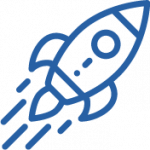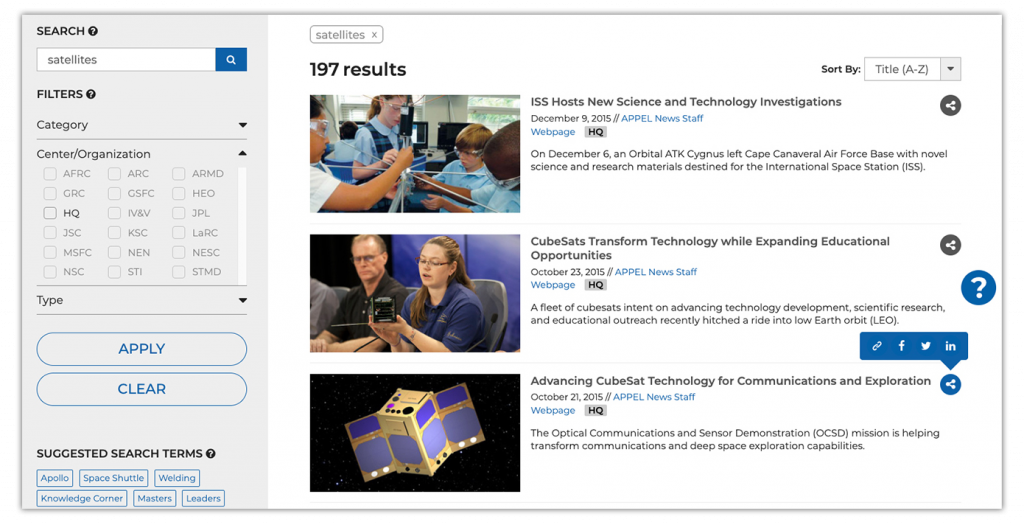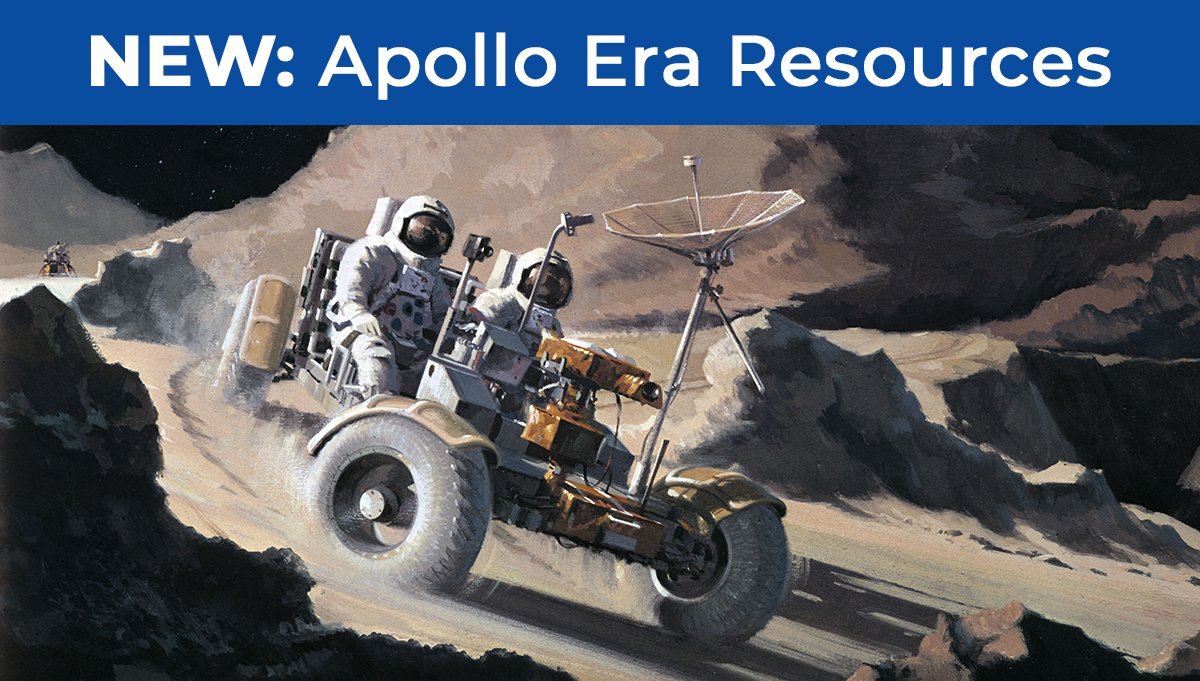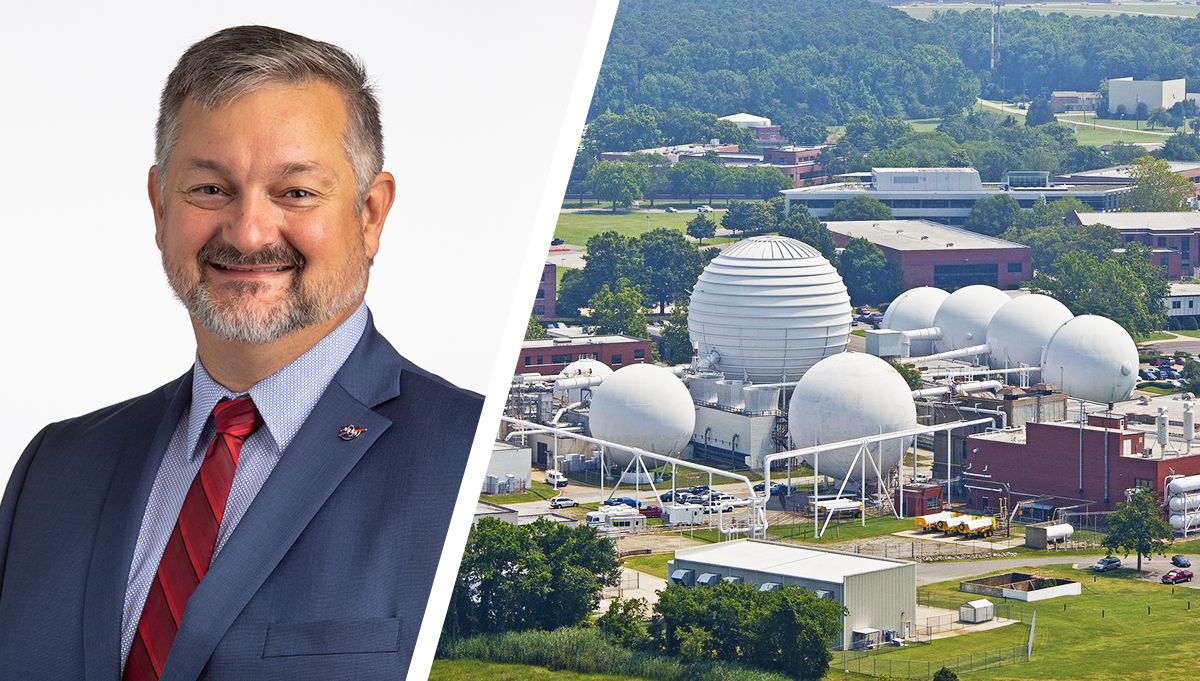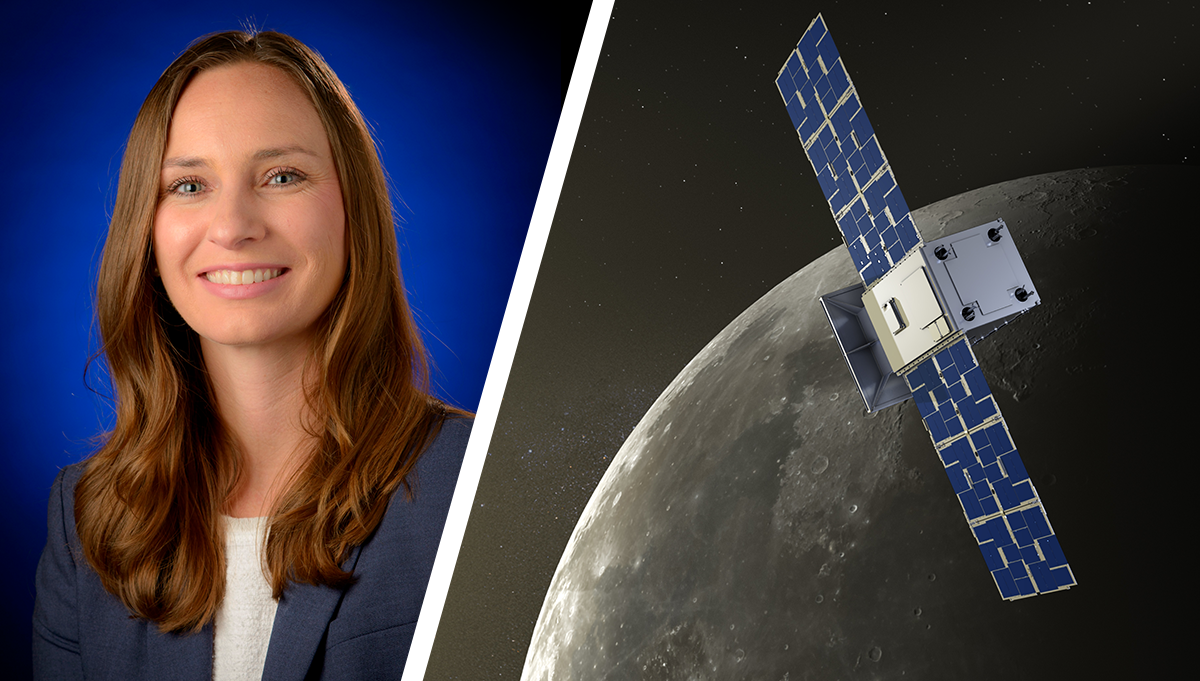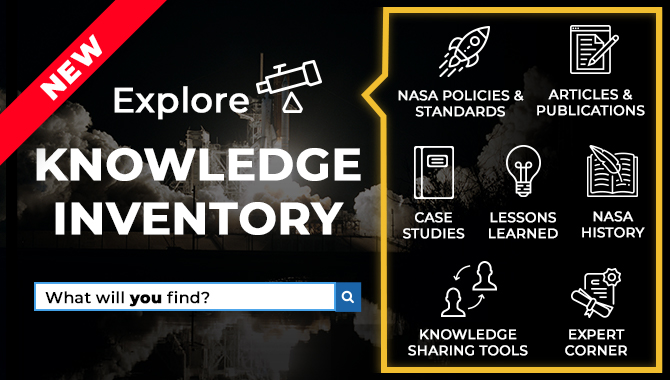
Knowledge Inventory contains valuable links to key information.
APPEL Knowledge Services (KS) recently unveiled a powerful new resource for NASA’s technical workforce — the Knowledge Inventory. This new resource points the way to thousands of articles, case studies, lessons learned and more that NASA has gathered over six decades at the forefront of aeronautics research and space exploration.
“Everyone on a project team at NASA is busy, and with Artemis, Commercial Crew, SLS, Orion, and all the other programs taking place, everyone is going to be even busier,” said Roger Forsgren, NASA Chief Knowledge Officer and APPEL Director. “NASA engineers don’t have a lot of time to hunt down information and they shouldn’t have to endure the frustration of such things as countless web search results or broken links. Our plan is that they can go to the Knowledge Inventory and get what they’re looking for.”
The Knowledge Inventory was developed at an exciting time at NASA, as the agency works to land the first woman and the next man on the Moon by 2024. NASA will establish a long-term presence on the Moon and use the experience gathered there to inform future missions to Mars.
The Knowledge Inventory, which is searchable by keyword, features a broad array of information divided into seven categories:
NASA Policies & Standards
NASA’s Technical Standards, Scientific and Technical Information Program and Technical Report Server are available here, as is the NODIS Library, with the capability to search for online policy directives by center.
Articles & Publications
This category features a rich collection of more than 2,000 articles, interviews, magazines and more on topics such as turning up the volume on productivity and using systems engineering and integration to solve project challenges. This knowledge has been published by APPEL Knowledge Services for NASA’s technical workforce during more than a decade.
Expert Corner
With topics from finding the common trends among catastrophic mishaps to understanding human behavior in space, this impressive collection of videos, interviews, podcasts and more features experts sharing decades of experience and insight into topics important to NASA.
Case Studies
This category features the experiences of other engineers in remarkable circumstances, from Columbia’s last flight, to the Concorde’s Achilles heel, to the complexity of Cassini-Huygens’ zero room for error.
Knowledge Sharing Tools
This section contains the tools, resources and information to improve knowledge gathering and sharing, from building a knowledge management plan to conducting an effective after action review. These tools help teams collect and share knowledge more effectively.
Lessons Learned
NASA’s lessons learned databases, some of which are center-specific, contain a wealth of information to help teams reach mission success.
NASA History
The history of NASA and its centers, in some cases told by the people who lived it.
The Knowledge Inventory builds on the APPEL KS “one-stop-shop” approach in which the award-winning curriculum and career development tools from the Academy of Program/Project & Engineering Leadership (APPEL) were combined with the critical knowledge sharing and knowledge management capabilities of the Chief Knowledge Officer (CKO) in 2018.
“The primary goal was to refocus all our attention on the NASA technical workforce. Our job is to make their job easier. Period,” Forsgren said.
“Once we decided to concentrate on the NASA technical workforce — our customers — it became a lot easier to envision what a Knowledge Inventory should contain and how it should be developed. The APPEL KS team not only understands the needs of NASA engineers, but they also have a real dedication to our agency. They came up with some brilliant ideas and concepts,” said Forsgren, who added that ease of use was a key development criterion.
APPEL KS will continue to develop the Knowledge Inventory, adding resources to it over time. NASA’s technical workforce, as well as CKOs and leadership at NASA’s centers and mission directorates, will ultimately have the opportunity to help shape the content and become authors as well.
“I hope it becomes a two-way street — they not only find the information they need but they also help build the site by contributing lessons learned and case studies, as well as recommendations for enhancements,” Forsgren said. “We always listen to our customers, after all. They possess the very knowledge we seek to catalogue and disseminate.”
Additional Resources:






